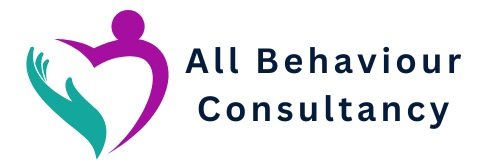Autism Awareness Month – Pathway to diagnosis in Adults
April is Autism Awareness month. Autism is a neurodevelopmental disorder and is characterised by delays in the development of social, language and communication skills. Other common neurodevelopmental disorders include Attention Deficit Hyperactive Disorder (ADHD) and dyslexia. As we have seen the assessment and support for children with neurodevelopmental disorders grow over the past years (Constantino & Charman, 2016), we wanted to the highlight the importance of assessments for adults who may not have been diagnosed with a neurodevelopmental disorder, and subsequently are not accessing services they require.
Thinking about those who might not have had access to an assessment as a child, or whose difficulties might have been managed by their family until they were older, this article is aimed to raise awareness of assessment and support for those teenagers or adults who might be seeking an adult neurodevelopmental disorder assessment, or who need personal or family support.
What causes a Autistic child to go undiagnosed?
Recent research (Constantino & Charman, 2016) has found that boys tend to receive a diagnosis more than girls, although we are unsure why girls are more likely to be undiagnosed. As adolescents, undiagnosed females have found to be vulnerable within the community, to financial difficulties or sexual abuse (Bargiela, Steward & Mandy, 2016). This means those who go undiagnosed don’t have the support in place to educate them on how to recognise and avoid these dangerous situations.
Social disadvantage (including income) and those of minority ethnic status (Daniels & Mandell, 2014) are also factors involved in underdiagnosis of a neurodevelopmental disorder. The recent emphasis seems to be on both parents and the school to detect neurodevelopmental difficulties, however this might be extremely difficult to detect if the symptoms are not severe. Also, for those socially disadvantaged families, the focus on working to ensure financial support for the family might overshadow the focus of detecting subtle difficulties a child might be experiencing. We also sometimes forget how well our children can hide their problems!
If unable to get a diagnosis as a child, how can I go about an adult assessment?
If you are reading this article and you think you would like to go ahead with an adult assessment, or you know of an adult (aged 17+, some areas will add under 18’s to the waiting list but check this out with your GP) who you think would benefit from this information, an NHS assessment can usually be set up through the GP. The GP will ask some questions and might fill out a questionnaire regarding your communication style and your history. This will then be sent to a team of healthcare professionals who will then book an appointment to complete a formal assessment with you. There may be a waiting list but this information can be requested from the team once you hear from them.
For an adult ADHD assessment, your GP can refer you to a specialist who would be able to assess you. If you get a diagnosis, they can prescribe medication to help symptoms of ADHD.
Assessments can also be completed through private organisations, and these can usually be found online.
If a diagnosis is made, follow up appointment may be offered to discuss the outcome and how to access the available support.
What support can I access?
All Behaviour Consultancy use evidence-based Positive Behaviour Support strategies to work with individuals to develop their social competencies and to help the child become an active part of their communities. We have a thorough assessment process to identify the function of behaviours that challenge and match interventions to reduce the likelihood of the behaviour happening rather. Do get in touch if we can be of help.
There is a wide range of support available to adults with neurodevelopmental disorders to support them to live fulfilling and meaningful lives. These include, care from family, which can be accessed through a carers assessment, respite care, day centres, outreach, supported employment, support groups and speculative therapists.
With thanks to Joanna Howard-Field Trainee Clinical Psychologist.

